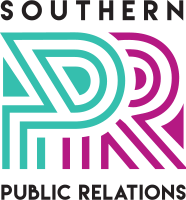Delays in nutting out the detail of new accessibility legislation are frustrating and detrimental to the wellbeing of close to three million New Zealanders*, says Dyslexia Foundation of New Zealand (DFNZ).
The Government has already committed to introducing critical legislation to accelerate accessibility, enabling New Zealand to become more welcoming and accessible for disabled people and others with accessibility needs, for example through being neurodivergent, blind/low vision, and/or ageing.
Disability Issues Minister Hon. Carmel Sepuloni was expected to put a proposal to Cabinet this month detailing this legislation. This has now been delayed until September.
DFNZ Chair of Trustees Guy Pope-Mayell says the delays are being attributed to more time being needed for officials to complete an analysis of options for new legislation.
“We understand, and are supportive of, the need to get it right. At the same time, we’d like to see more urgency in prioritising this life-changing piece of legislation,” Pope-Mayell says.
“It is estimated close to three million New Zealanders with permanent access needs stand to benefit from this legislation. Delays at this stage just prolong the inequities and difficulties of everyday life.
Currently, the burden is on people with access needs to fight for their right to accessible housing, transport, information, workplace, and digital spaces. This is discriminatory, and exhausting.”
“There is also a whole raft of people with short-term circumstances who experience daily barriers to goods and services, including carers of young children, people with English as a second language, and those with short term injuries. These people also will benefit from legislation that removes the barriers.”
Pope-Mayell says it is important that everyone understands that access needs are not something ‘other people’ have. All of us are susceptible if circumstances change or due to ages and stages of life.
“This new legislation will touch all our lives. Broken a leg, or sprained an ankle, making it harder to get around? Couldn’t get through a shop door with a pushchair? Found it difficult to get about with young children or a disabled relative or friend? Struggled to navigate a website that is important to you? Then you have experienced access needs,” he says.
In essence, access needs are difficulties accessing physical environments, transportation, and facilities and services open or provided to the public, as well as products, services, information and communications, including technology and systems. The proposed new legislation will set the initial bar, and progressively lift it over time for accessibility and equity, providing explicit expectations backed by enforceable regulations. In simple terms it will facilitate the identification and removal of barriers.
The impetus for new accessibility legislation has come from the Access Alliance, which comprises a growing number of organisations from the disability and neurodiversity sectors, working with a range of business champions , and nearly 7000 individual supporters, representing and advocating for people with access needs.
DFNZ joined the Access Alliance in January, as a Supporting Organisation and a Campaign Partner. The Alliance says the proposed legislation has the support of all major Parliamentary parties.
“This drive for new legislation acknowledges that current Human Rights legislation is insufficient. It does not set clear and specific expectations on accessibility and it has no teeth. In contrast, we expect the new legislation to do all this and more. And the sooner it is introduced the better,” Pope-Mayell says.
*Dyslexia Foundation of New Zealand, based on international occurrence, conservatively estimates at least 10% of the New Zealand population have dyslexia, and at least 20% collectively have some form of neuro-difference, such as Asperger’s, Autism, Dyscalculia, Dysgraphia, ADHD, Traumatic Brain Injury, Fetal Alcohol Syndrome.
Blind Low Vision NZ estimates 180,000 New Zealanders are blind or have low vision.
The 2013 New Zealand Disability Survey estimated that a total of 1.1 million New Zealanders were disabled (Disability Survey: 2013, Statistics New Zealand). Disability was defined as any self-perceived limitation in activity resulting from a long-term condition or health problem lasting or expected to last 6 months or more and not completely eliminated by an assistive device. People were not considered to have a disability if an assistive device such as glasses or crutches eliminated their impairment.
2018 New Zealand Census. Seniors (over 65) comprise 15.22% of the population, or 715,173 people.


